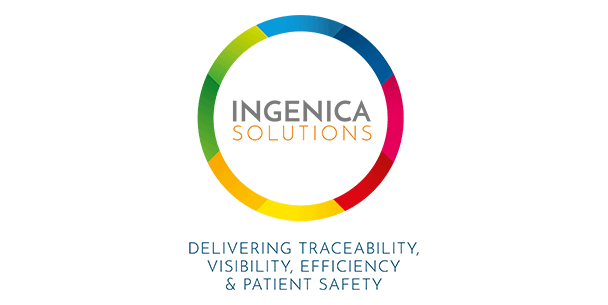February 23, 2022 Guest opinion piece
In a series of blogs ahead of our 2022 healthcare conference, we share insights from Steve Saunders, sales manager at Ingenica Solutions, as he discusses the critical need for widespread engagement to drive success.
There is an escalation in the need for good data in order to make good decisions, which is instrumental in transforming supply chain and procurement processes in NHS trusts. Yet, the biggest gap in the transformation is data.

Data is of course key to enable healthcare organisations to work more efficiently and effectively. On the same note, innovative technologies are also a catalyst for change. These technologies drive digitalisation and fill the data void, but without the engagement of the teams using the technology to improve the data, change is incredibly difficult.
The need to underpin these programmes of change with stakeholder training and engagement is crucial because the scale of the project’s impact is immense. It reaches all stakeholders; patients, managers, clinicians, finance, procurement, and beyond, and therefore buy-in and contribution toward the project initiatives affects outcomes.
The truly successful projects share a common component; they have committed and determined project teams who primarily view this as a change management project, and effectively engage with all stakeholders. So, think about how the relevant staff, patients and partnerships are working together to realise success? Has a collaborative approach been adopted? And if not, how can this best be implemented?
As with all projects, there are lessons that have been learnt, that can be shared with other trusts that are embarking on their supply chain journey, and it is these examples of best practice that can be fully replicated across the NHS.
Tapping into best practice across the sector, and finding out what works and what doesn’t, can help to steer decisions on stakeholder engagement. For instance, Royal Cornwall Hospitals NHS Trust (RCHT), one of six selected as the Department of Health and Social Care’s Scan4Safety demonstrator sites for the adoption of GS1 and PEPPOL standards in England, has made outstanding progress. RCHT is now not only leading the way within the NHS in England but in some areas, such as product recall to the patient level, it is surpassing retail and other private sector industries.
What makes RCHT’s project stand out? There are many areas where this project excels. Importantly, it has led an extremely successful programme supported through the buy-in of people across teams.

A successful project of course requires collaborative engagement across all departments. It’s about working together to improve processes, and every NHS employee can make a difference. While it is the procurement teams who initiate these projects, it takes commitment and buy-in from everyone to ensure success.
Remember, while those at the heart of procurement and supply chain management are clear on what’s involved and fully embrace the changes, for NHS employees whose roles fall outside of these teams, many feel less engaged; confused about what it means, and how it will affect day-to-day roles.
To achieve healthcare efficiencies every NHS employee must contribute. It is not only the procurement and supply chain teams that have a part to play, or who indeed benefit, it’s an organisation-wide initiative. Innovative solutions that help to improve data quality, access to data and enable better data analysis, make a difference to the individual roles and responsibilities of the whole workforce – everyone is part of the bigger picture to get the NHS into better shape.
Implementing inventory management systems and GS1 standards is predominately about changing processes and behaviour, which like anything new, takes time to embed. Many clinicians for instance are used to ordering what products they need, whenever needed. Moving forward this will very quickly become a thing of the past, and rather than being seen as losing an element of control, as some have expressed concern about, it is in fact a huge step forward – it’s an opportunity to eradicate old, outdated procedures and replace them with up-to-date practices. Closing the engagement gap and working closely together is central to sustainable, long-term change; helping the NHS take closer steps to better procurement and supply chain excellence.
Don’t hesitate to make a start on your supply chain transformation journey. Consider 2022 as the prime time to capitalise on the benefits that a change management programme of this type yields. Weigh up where you think you are in the process of improving procurement and supply chain processes, and where you actually are, and be certain to ask – have you taken the steps needed to close the engagement gap?

Steve Saunders, sales manager, Ingenica Solutions

About Ingenica Solutions
Ingenica Solutions is a leading player in the healthcare market. It has a proven track record in delivering IT solutions in the areas of procurement, supply chain, inventory management, and the back-office which improve financial and operational efficiencies in the NHS.As the first inventory management product to become GS1 UK-Approved for use across the NHS, the company’s award winning solution, Ingenica Solutions’ 360 IM, provides a 360 degree view of cost drivers; tracking and tracing products, people and equipment in order to improve procurement and supply chain process.
Unlike other solutions, it is configurable across multiple areas with different processes; flexible and scalable to meet multi-faceted, challenging clinical environments, with a proven development and functionality future roadmap.
Furthermore its solution meets Government requirements for inventory management (e-Procurement strategy, GS1 standards, PEPPOL, patient level costing, track and trace).
About the GS1 UK Healthcare Conference
On 17-18 March, the GS1 UK Healthcare Conference will be taking place at QEII Centre, London to bring you more insights from the GS1 standards in healthcare arena.
Find out more about the conference and what's in store on our website here.
